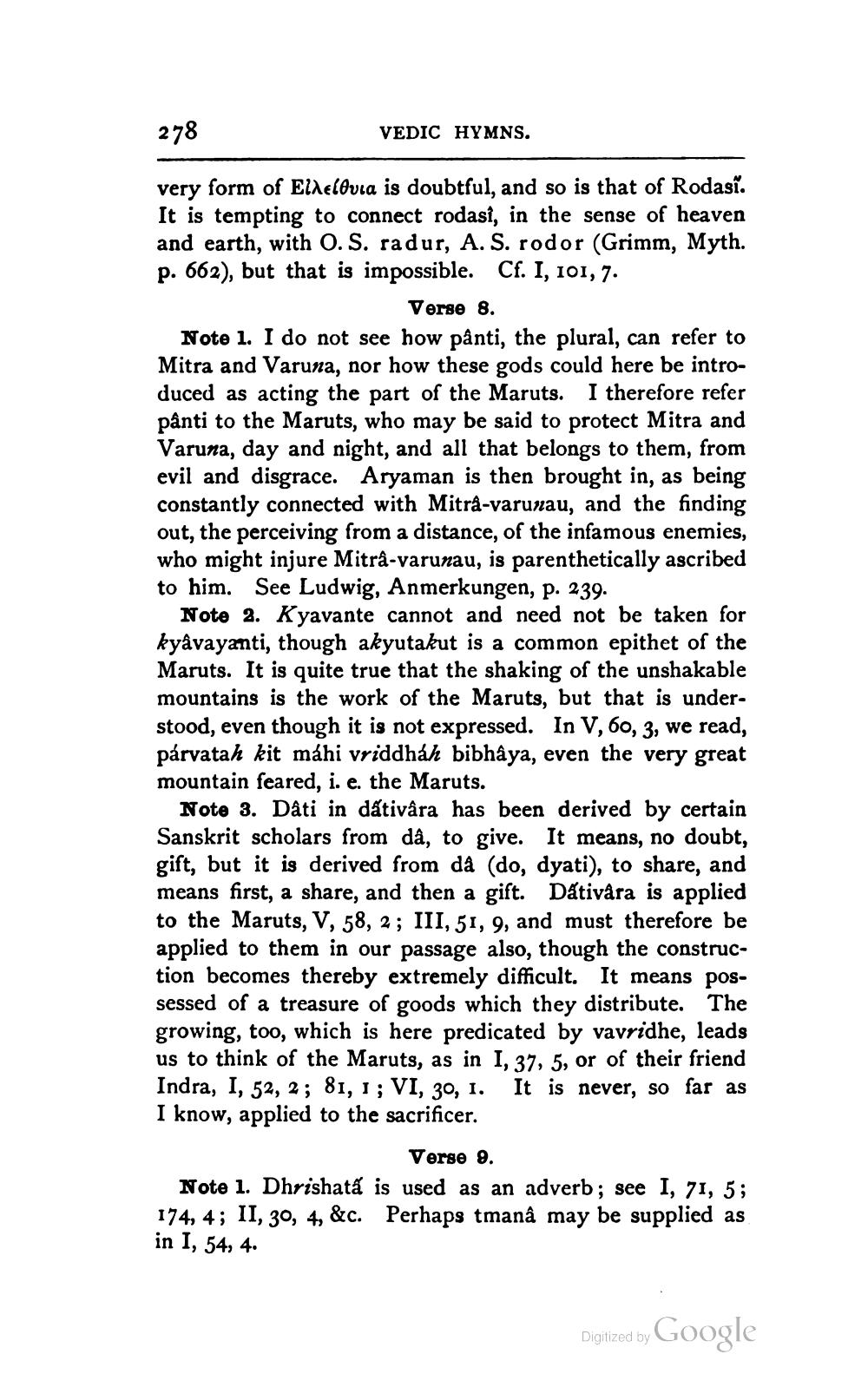________________
278
VEDIC HYMNS.
very form of Eldelovia is doubtful, and so is that of Rodasi. It is tempting to connect rodasi, in the sense of heaven and earth, with O.S. radur, A. S. rodor (Grimm, Myth. p. 662), but that is impossible. Cf. I, 101, 7.
Verse 8. Note 1. I do not see how pânti, the plural, can refer to Mitra and Varuna, nor how these gods could here be introduced as acting the part of the Maruts. I therefore refer pânti to the Maruts, who may be said to protect Mitra and Varuna, day and night, and all that belongs to them, from evil and disgrace. Aryaman is then brought in, as being constantly connected with Mitra-varunau, and the finding out, the perceiving from a distance, of the infamous enemies, who might injure Mitrå-varunau, is parenthetically ascribed to him. See Ludwig, Anmerkungen, p. 239.
Note 2. Kyavante cannot and need not be taken for kyâvayanti, though akyutakut is a common epithet of the Maruts. It is quite true that the shaking of the unshakable mountains is the work of the Maruts, but that is understood, even though it is not expressed. In V, 60, 3, we read, párvatah kit máhi vriddhah bibhaya, even the very great mountain feared, i. e. the Maruts.
Note 3. Dåti in dativâra has been derived by certain Sanskrit scholars from då, to give. It means, no doubt, gift, but it is derived from då (do, dyati), to share, and means first, a share, and then a gift. Dåtivāra is applied to the Maruts, V, 58, 2; III, 51, 9, and must therefore be applied to them in our passage also, though the construction becomes thereby extremely difficult. It means possessed of a treasure of goods which they distribute. The growing, too, which is here predicated by vavridhe, leads us to think of the Maruts, as in I, 37, 5, or of their friend Indra, I, 52, 2; 81, 1; VI, 30, 1. It is never, so far as I know, applied to the sacrificer.
Verse 9. Note 1. Dhrishatá is used as an adverb; see I, 71, 5; 174, 4; II, 30, 4, &c. Perhaps tmanâ may be supplied as in I, 54, 4.
Digitized by
Digitized by Google




